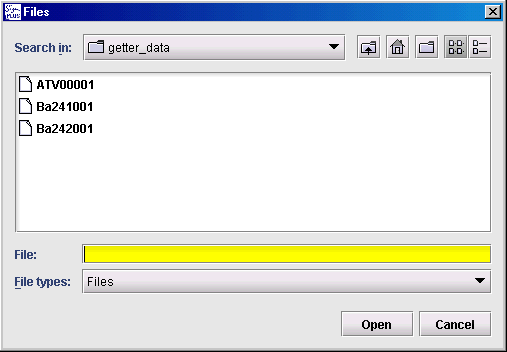Reset queue
Opens a dialog box in which you can browse your file system and load a list file.

When the desired data file has been selected it is also possible to select a specific check number range for the processing.

After the list file has been loaded the following items will be enabled in the list and allow processing with the physical verification in SignBase. If FraudOne is exited, the list will be automatically loaded with the next start and set in the same position as when the program was exited.
Once the file has been loaded, the following menu items will be available.
